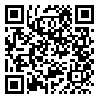BibTeX | RIS | EndNote | Medlars | ProCite | Reference Manager | RefWorks
Send citation to:
URL: http://ijdld.tums.ac.ir/article-1-5417-en.html
2- Diabetes Research Center, Endocrinology and Metabolism Clinical Sciences Institute, Tehran University of Medical Sciences, Tehran, Iran ,
Background: The objective of the current study is to assess the effectiveness of Mobile Short Message Service (SMS) intervention on education of basic self-care skills in patients with type 2 diabetes. Moreover, we aimed to determine whether delivering individually-tailored educational messages can be more effective than general educational messages.
Methods: A total of 150 patients with diabetes type 2 were randomized into three groups: tailored SMS group, non-tailored SMS group, and the control group. Biochemical parameters including HbA1c, FBS, lipid profile were evaluated for the three groups at baseline and after 12 weeks. Moreover, self-care Inventory (SCI), Diabetes Management Self-Efficacy Scale (DMSES) and Diabetes Self -Care Barriers assessment scale for Older Adults (DSCB-OA) were completed. In the tailored SMS group, each person received 75% of their messages based on the top two barriers to adherence that they had experienced and reported in their scale. In the non-tailored SMS group, random messages were sent to every patient.
Results: After12 weeks, although HgA1c levels did not significantly change, significant decline was observed in FBS and mean BMI in both intervention groups. Mean SCI-R scores significantly increased and mean DSCB and DMSES scores significantly decreased in both tailored and non-tailored SMS groups. In the control group, mean SCI-R scores decreased and mean DSCB and DMSES scores significantly increased (P< 0.001).
Conclusion: Sending short text messages as a method of education in conjunction with conventional diabetes treatment can improve glycemic control and positively influence other aspects of diabetes self-care. According to our findings, sending SMS regularly in particular times appears to be as effective as sending individually tailored messages.
Received: 2015/10/1 | Accepted: 2016/01/31 | Published: 2016/09/22
| Rights and permissions | |
 |
This work is licensed under a Creative Commons Attribution-NonCommercial 4.0 International License. |





